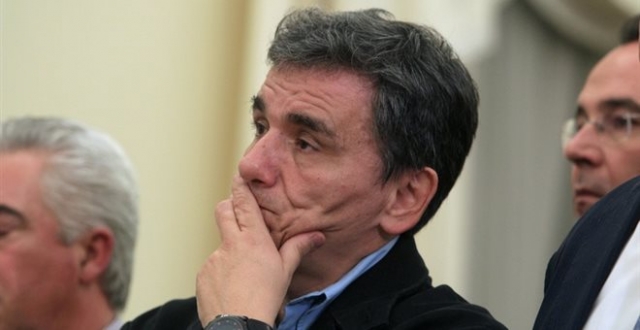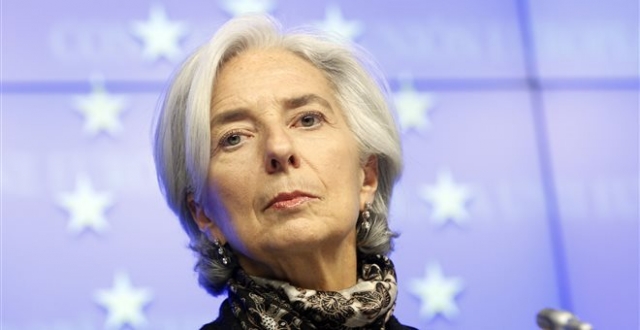Photo: SOOC/Nick Paleologos
Several hours before the critical meeting of the Eurogroup in Luxembourg that will discuss the financial problems of Greece, Deputy Minister for Social Security Dimitris Stratoulis said Greece would face short-term hardships if it left the euro zone.
In particular, he stated in the morning broadcast of Mega TV that the "creditors would suffer much more than Greece in the event of Grexit. People should not worry. We would have difficulties for several months but then everything would be fine."
Stratoulis assured that the government had made provisions for taking "all those measures that will enable Greece to return to the path of development and hope after a short period of hardships." Then subsequently he was clear that if Athens did not repay its loans to the International Monetary Fund at the end of the month "the creditors themselves would not define it as a credit event," adding that the issue was essentially political and ideological.
Earlier SYRIZA MP and Professor at the London School of Economics Costas Lapavitsas said that in the event of exiting the euro zone and introducing the drachma, it would have a one-to-one ratio with the euro. He supports the view that the only way for Greece to overcome its financial difficulties was to introduce a national currency after 2010, whereas two months ago, he openly said that this would lead to capital controls and coupons for food, fuel and medicines.
Meanwhile, in an interview with the BBC, Deputy Minister of Finance and person in charge of international economic relations Euclidis Tsakalotos said that if the government failed to reach an economically feasible plan, it should call a referendum on whether Greece should stay in, or leave, the euro zone because, in his opinion, it had no mandate from the people to lead the country out of the European Monetary Union.

On the other hand, Tsakalotos warned that Greece's exit from the euro zone might be the beginning of the end of the common market. "If Greece goes out, the euro might break down," he said.
In his other statements today, Tsakalotos said that Greece would not be able to pay its debts to the International Monetary Fund on 30 June without financial aid.
Shortly before today's meeting of the Eurogroup in Luxembourg, Lagarde was adamant that Athens should pay the aggregate amount of over 1.5 billion euro on the specific date. "Otherwise, Greece will be in default with the IMF. I hope this is not the case," she added.

According to Lagarde, the International Monetary Fund continues to participate in the negotiations with Greece, stressing that it requires the implementation of the pension reform, taking a "smart approach" on the subject. According to her, the talks could continue intensively if the Greek side submitted new proposals.